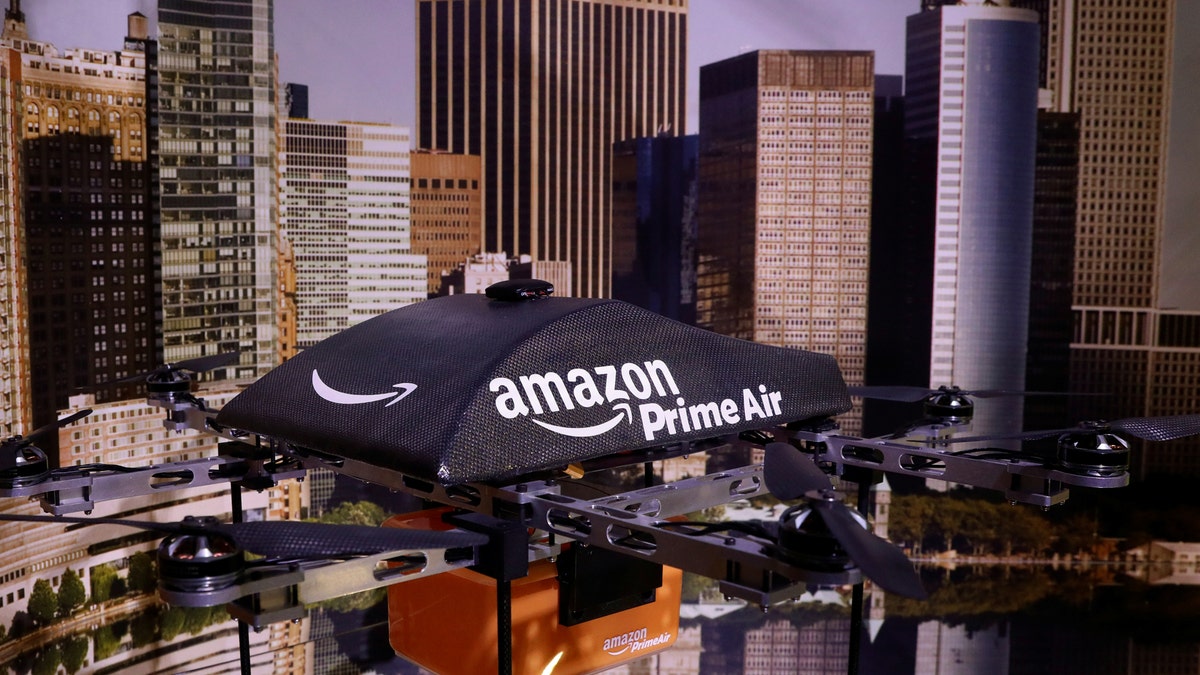
File photo: An Amazon Prime Air Flying Drone is displayed during the 'Drones: Is the Sky the Limit?' exhibition at the Intrepid Sea, Air & Space Museum in New York City, U.S., May 9, 2017. (REUTERS/Brendan McDermid)
In case you didn't already know it, Amazon envisions a world where the skies buzz with autonomous drones carrying packages from fulfillment centers to customers' homes. The ecommerce giant has long been working on its Prime Air flying machine, though strict regulations governing the commercial use of such contraptions means that a full-fledged, drone delivery service is still a ways off.
Amazon
Still, that doesn't stop Amazon making plans, evidenced by a string of related patents landing on the desk of the U.S. Patent & Trademark Office in recent years.
The latest one focuses on the design of its fulfillment centers and how it could be adapted to suit drone delivery operations in urban areas.
More From Digital Trends
Currently, most of Amazon's depots comprise single-floor warehouses built away from city centers. Its latest patent describes a multi-level fulfillment center "designed to accommodate landing and takeoff of unmanned aerial vehicles."
Illustrations included in the patent application show a giant beehive "drone tower" with numerous exit and entry points for delivery drones. For reasons of speed and efficiency, it's perfectly understandable that Amazon would want to base a drone delivery operation in an urban area, enabling it to reach more customers in super-quick time. However, the company would first have to satisfy regulators that having so many drones flying in such a concentrated area posed no safety issues for people on the ground, and noise could also potentially be an issue for occupants of nearby buildings.
While Amazon's latest idea may seem fanciful to many observers, it's clearly not as wacky as the flying warehouse with incorporated drone airport that it proposed in another patent.
Another patent described using the top of street lights, cell towers, and church steeples as docking stations to charge its drones as they make their way to and from customers' homes.
Of course, we should note that at this stage Amazon's plan for a drone tower is only a patent application, and that even if it's granted by the USPTO, there's a chance it'll forever remain as an idea on a piece of paper.
